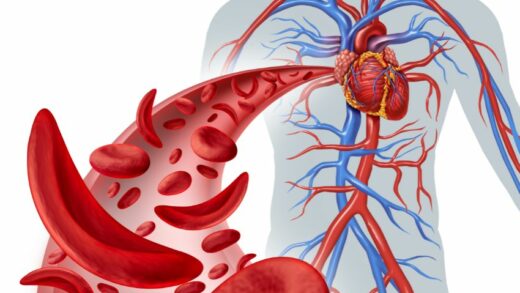Ovarian cancer is a type of cancer that develops in the ovaries, which are the female reproductive organs responsible for producing eggs. According to the American Cancer Society, ovarian cancer accounts for around 3% of all cancers in women, but it is the fifth leading cause of cancer deaths in women. This is mainly due to the fact that ovarian cancer often goes undetected until it has reached an advanced stage. In this article, we will discuss the development of ovarian cancer, its causes, risk factors, symptoms, diagnosis, and treatment options.
Causes of Ovarian Cancer:
The exact cause of ovarian cancer is not yet known, but several factors have been identified that may increase a woman’s risk of developing this cancer. These include:
- Age – Women over the age of 50 are at a higher risk of developing ovarian cancer.
- Genetics – Women with a family history of ovarian cancer are more likely to develop the disease.
- Hormone Replacement Therapy (HRT) – Women who have undergone HRT for a prolonged period may have a higher risk of developing ovarian cancer.
- Endometriosis – Women with endometriosis, a condition where the lining of the uterus grows outside of the uterus, may have a higher risk of developing ovarian cancer.
- Obesity – Women who are obese are more likely to develop ovarian cancer.
Symptoms of Ovarian Cancer:
In the early stages, ovarian cancer may not cause any symptoms. However, as the cancer develops, the following symptoms may occur:
- Bloating
- Abdominal or pelvic pain
- Difficulty eating or feeling full quickly
- Urinary symptoms, such as urgency or frequency
- Fatigue

Diagnosis of Ovarian Cancer:
If a woman experiences any of the symptoms mentioned above, her doctor may perform several tests to diagnose ovarian cancer. These tests may include:
- Pelvic Exam – The doctor will examine the ovaries and uterus for any abnormalities.
- Imaging Tests – These tests may include an ultrasound, CT scan, or MRI.
- Blood Tests – Blood tests may be done to check for elevated levels of a protein called CA-125, which may be a sign of ovarian cancer.
- Biopsy – If a tumor is found, a biopsy may be done to determine if it is cancerous.
Treatment of Ovarian Cancer:
The treatment of ovarian cancer depends on the stage of the cancer and the woman’s overall health. Treatment options may include:
- Surgery – Surgery is usually the first line of treatment for ovarian cancer. The surgeon may remove one or both ovaries, the uterus, and other nearby tissues.
- Chemotherapy – Chemotherapy may be used to kill cancer cells after surgery or in advanced cases of ovarian cancer.
- Radiation Therapy – Radiation therapy may be used in combination with chemotherapy to kill cancer cells.
- Targeted Therapy – Targeted therapy uses drugs to target specific molecules in cancer cells to stop their growth.

FAQs:
Can ovarian cancer be prevented?
There is no sure way to prevent ovarian cancer, but some steps can be taken to reduce the risk, such as using birth control pills, having a hysterectomy, and having children.
Is ovarian cancer hereditary?
Yes, ovarian cancer can be hereditary. Women with a family history of ovarian cancer are more likely to develop the disease.
How is ovarian cancer different from cervical cancer?
Ovarian cancer develops in the ovaries, while cervical cancer develops in the cervix, which is the lower part of the uterus that connects to the vagina. They have different symptoms, risk factors, and treatment options.
What are the survival rates for ovarian cancer?
The survival rates for ovarian cancer depend on several factors, such as the stage of the cancer at diagnosis and the woman’s age and overall health. According to the American Cancer Society, the five-year survival rate for ovarian cancer is around 49%.
What should I do if I have symptoms of ovarian cancer?
If you have any symptoms of ovarian cancer, such as bloating, abdominal or pelvic pain, difficulty eating, or urinary symptoms, you should see your doctor as soon as possible. Early detection is key to successful treatment.
Conclusion:
The development of ovarian cancer is still not fully understood, but several risk factors have been identified. Women should be aware of the symptoms of ovarian cancer and seek medical attention if they experience any of them. Early detection is crucial for successful treatment. If you have any concerns about ovarian cancer, talk to your doctor or a healthcare professional. With proper care and treatment, many women with ovarian cancer can lead long and healthy lives.






















